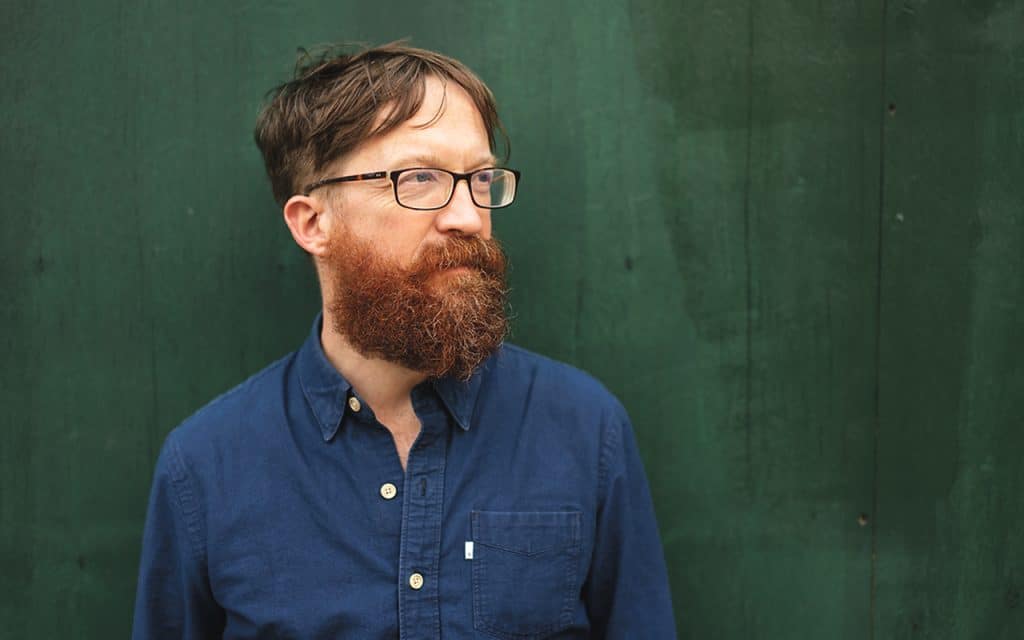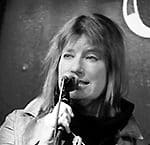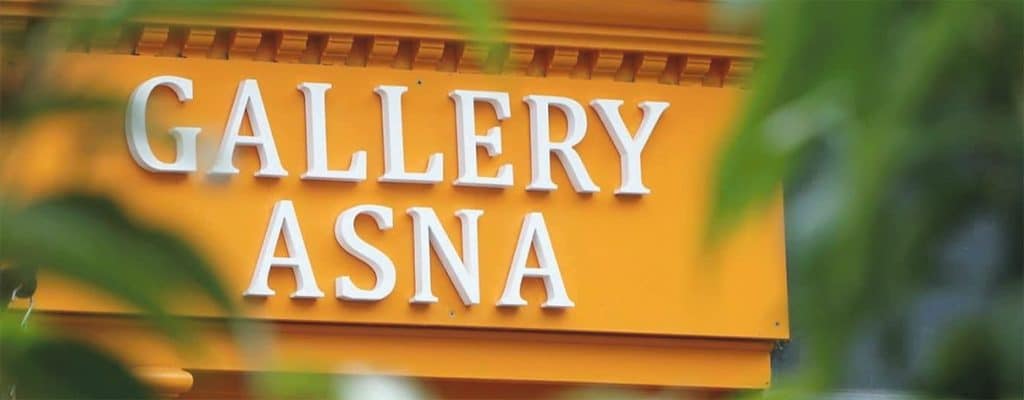
There is a sentence about the singer-songwriter and guitarist Niall Connolly that is very memorable. It’s on his website, www.niallconnolly.com. Part of his Electronic Press Kit (EPK), it is being used over and over again by many of the venues where he plays: “A master storyteller, Niall Connolly is the kind of guy you want to find yourself sitting next to at a pub, a wedding, or even a funeral.” Based on how he comes across in gigs, videos and interviews, the statement rings true. It contains the contradiction that applies to virtually all singer-songwriters who perform live. They have to share a part of themselves that resonates. Open up, in other words. But they can only do that up to a point. There has to be aloofness, too. Apart from the need for physical distance (who wants to be mobbed?) the person at the centre of the audience’s attention better suggest they have something special to offer. A magic ingredient that serves the spectators, however momentarily. The word “master” in the sentence hints at that. Masters should be approached with deference.
Niall Connolly is a masterful storyteller, without a doubt. At the same time, if appearances are anything to go by, he also is that congenial guy who anyone can rely on in social situations. During the zoom interview for West Cork People he exudes kindness, matter-of-factness, and open-heartedness, as he sits at his desk in Rockaway, Queens, New York, surrounded by books and colourful, personable objects, doing his utmost to make everyone else feel at ease. Including his wife, Clare McCarthy, who walks in briefly and retrieves something from his desk. She is pivotal to his life story and music.
Niall Connolly was born in Glanmire and played music in and around Cork or further afield until 2004, when he was 27. “Not exactly very young but not jaded and old, either.” That was the time he decided to go to America. Ostensibly, he crossed the ocean to try to live off his music (which became the only thing he was allowed to do in the USA for money). But he was also hoping to reconnect with Clare, whom he had met in Galway, as she was a friend of his (American) cousin. She hadn’t quite fallen for his charms at the time. Now they have a six-year-old daughter.
“My big love and my little love,” as he refers to them in ‘It’s a Beautiful Life’, the first song on his latest album, released in June 2023.
And, in the album’s third song, ‘Out the Light’, his voice tenderly sings: “When I am big and you are small, I’ll take care of you / Is what my child said to me just now and split the world in two.”
It is the start of a complicated true story skilfully whittled down to a handful of lines.
Connolly remembers how he spent hours talking to his friend and collaborator, singer-songwriter Mick Flannery (born in Blarney) about his family story, relating how fate conspired to save the life of his Irish-American uncle Brendan, “a blessed fool”, who slipped and fell during a blackout in New York in 1965, after climbing onto the roof to look across the dark and silent city. He was expected to die. His brother was sent home from active service during the Vietnam War to say goodbye. Not only did Brendan manage to stay alive but, by chance, his fall also saved the life of his brother whose entire platoon, as it turned out, was killed during his absence. Later, the soldier would become the father of Jen, cousin to Niall, who would end up marrying her best friend.
He concludes the song with, “Beside me now, the mother to the apple of my eye / […] Thank the stars above and every kind of messy road that leads to love.”
Processes that tend to involve inspiration – such as songwriting – are always a bit mysterious. So how does Connolly do it?
He says he mostly takes a little notebook with him to write down thoughts, lines, observations when walking outside. Especially in the small town in the Catskills, a mountain belt in New York State, where his family live part of the time, which is visited by busloads of “leaf peepers” in the autumn when the colours of the leaves change spectacularly. Nature is very important to him. “Standing next to a tree that is hundreds of years old gives a different perspective on time,” he says. According to his website, writing for his last album, ‘The Patience of Trees’, started during Covid as he skipped stones with his young daughter and tried to summon serenity and forbearance from the forest that surround his Catskill home: “I was reading about how trees can communicate and send out distress signals to warn and support each other within the forest. That felt like a metaphor for what everyone had to do during the pandemic.”
Now firmly settled in America, he does everything under his own steam. He has released nine albums on his own label, C.U. Records. The capital letters stand for Credit Union. While still living in Cork, he registered at a clinic in the city to partake in medical trials that paid relatively well. He then took out a credit union loan against the money he had earned and recorded his first album. He gigs. Tirelessly; 150 to 120 times a year. Sometimes opening for fairly famous bands. “That’s really comfortable. I get abundant lighting and sound and the loan of a large audience.”
He also hosts, and performs at, a regular event around New York (often at the Irish Art Centre) called Big City Folk, where musicians can hone their song-writing skills through competitions and challenges. He firmly believes that in the crucible of live performance, “You find out at what works, what lines stand the test of time.” He has also set up a Patreon account where people can support him for a small monthly fee (the maximum being $12.30).
Many live recordings of his concerts are available online so it is possible to get a taste of the broad emotional range at his command. Sometimes he sounds wracked with worry about getting through to a friend who’s been having a hard time for a long time and feels like a burden in a song called, ‘We don’t have to talk about it’. It feels very real and raw. But there is also, ‘May 12th, 1916 – A Song for James Connolly’, which he performed with Glen Hansard. A wonderfully moving and melodic and refined commemoration of James Connolly (no relation), a leader of the Easter Rising on the eve of his execution, it is based on an interview with his daughter, Nora, and addresses both her and her mother Lily. “Don’t you cry,” Connolly sings. “I have lived the fullest of lives”
Niall Connolly plays Levis Corner House, Ballydehob on Sunday, December 22. “The best venue on earth? Probably” he says on his website. Booking recommended: leviscornerhouse.com



